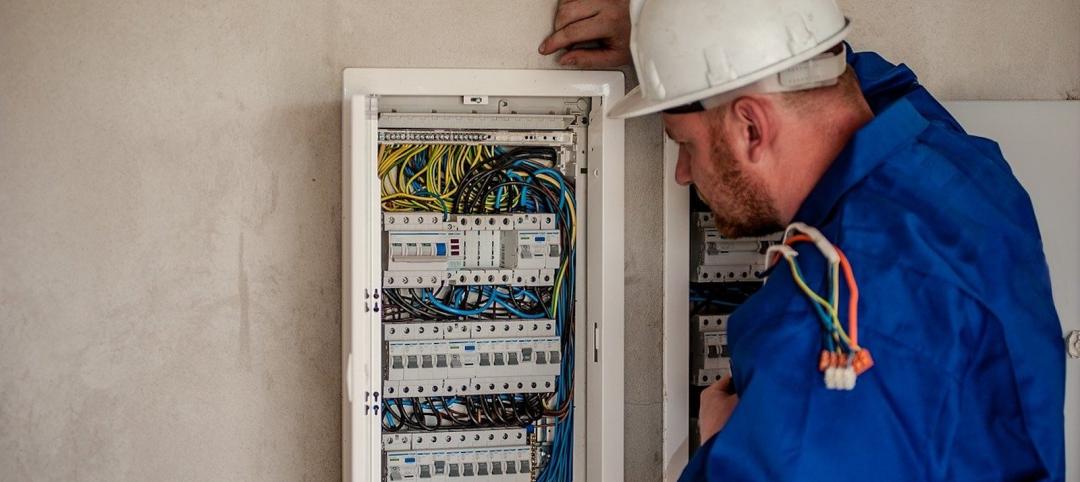The U.S. Federal Emergency Management Agency (FEMA) has launched a new government-wide effort to boost national resiliency and reduce energy costs.
Under the National Initiative to Advance Building Codes, federal departments and agencies will review federal funding and financing of building construction to ensure projects follow updated model codes. The initiative will also provide incentives and support for communities to adopt modern building codes.
Members of the Mitigation Framework Leadership Group will review their infrastructure grantmaking processes to ensure that they align with and support the adoption and use of current editions of the International Residential Code (IRC) and International Building Code (IBC). FEMA chairs the leadership group, consisting of another 13 federal agencies.
“By modernizing building codes, communities will not only save money through lower energy costs and protecting their property, but together, we will also save lives by ensuring our infrastructure remains resilient in the face of climate change and associated extreme weather events,” said FEMA Administrator Deanne Criswell.
FEMA views the adoption of current building codes as the most effective means to enable communities to become more resilient to hurricanes, flooding, wildfires, and other natural hazards that are increasing in frequency and severity due to the changing climate. Yet, FEMA has been until now the only federal agency that requires the construction it funds to adhere to current, hazard-resistant codes.
Related Stories
Codes and Standards | Mar 24, 2022
New York senate moves to speed up fossil fuel ban in new buildings
Lawmakers in the New York State Senate are backing a proposal to ban fossil fuels in new building construction three years sooner than a plan proposed by Gov. Kathy Hochul.
Codes and Standards | Mar 23, 2022
High office vacancies have cities rethinking downtown zoning
As record-high office vacancies persist in U.S. urban areas, cities are rethinking zoning policy.
Codes and Standards | Mar 22, 2022
Dept. of Energy awards $32 million for next-generation building retrofits
The U.S. Dept. of Energy has awarded a total of $32 million for more than 30 next-generation building retrofit projects that will dramatically improve affordable housing technologies, according to a DOE news release.
Legislation | Mar 18, 2022
New framework to help site community solar projects released
The Solar Energy Industries Association (SEIA) released a new report to aid policymakers in siting community solar projects.
Codes and Standards | Mar 17, 2022
Dept. of Energy seeks input on building-integrated photovoltaic systems
The U.S. Department of Energy (DOE) Solar Energy Technologies Office (SETO) and Building Technologies Office (BTO) recently issued a request for information to gather input on technical and commercial challenges and opportunities for building-integrated photovoltaic (BIPV) systems.
Legislation | Mar 16, 2022
Weak federal commercial real estate rules will hamper seizing Russian assets
Lax disclosure regulations that have made the U.S. a global hot spot for money laundering via real estate holdings will make it difficult for officials to seize properties from Russian oligarchs.
Codes and Standards | Mar 15, 2022
First company awarded Fitwel Certification in Senior Housing for Occupant Health & Wellness
The Springs at Greer Gardens in Eugene, Ore., is the first property to earn a Fitwel global health certification under the newly created senior housing scorecard.
Codes and Standards | Mar 10, 2022
HOK offers guidance for reducing operational and embodied carbon in labs
Global design firm HOK has released research providing lab owners and developers guidance for reducing operational and embodied carbon to meet net zero goals.
Codes and Standards | Mar 7, 2022
Late payments in the construction industry rose in 2021
Last year was a tough one for contractors when it comes to getting paid on time.
Codes and Standards | Mar 7, 2022
Massachusetts proposed energy code changes don’t ban gas
Proposed changes to the Massachusetts energy code would provide incentives for builders to fully electrify buildings, but not impose a ban on natural gas hookups.

















